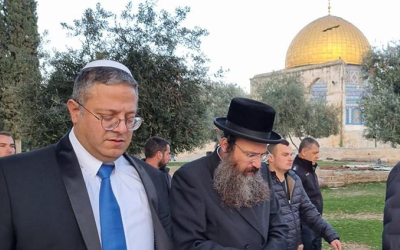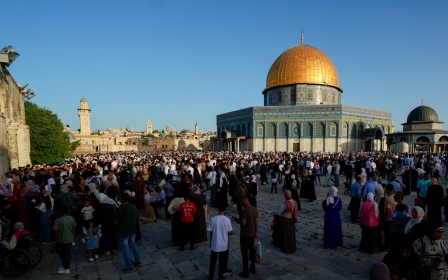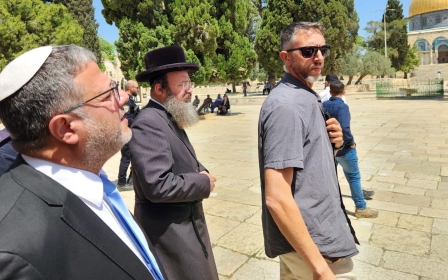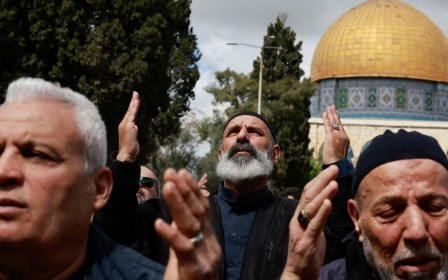Israel's Ben Gvir says Jewish prayer 'allowed' at Al-Aqsa Mosque
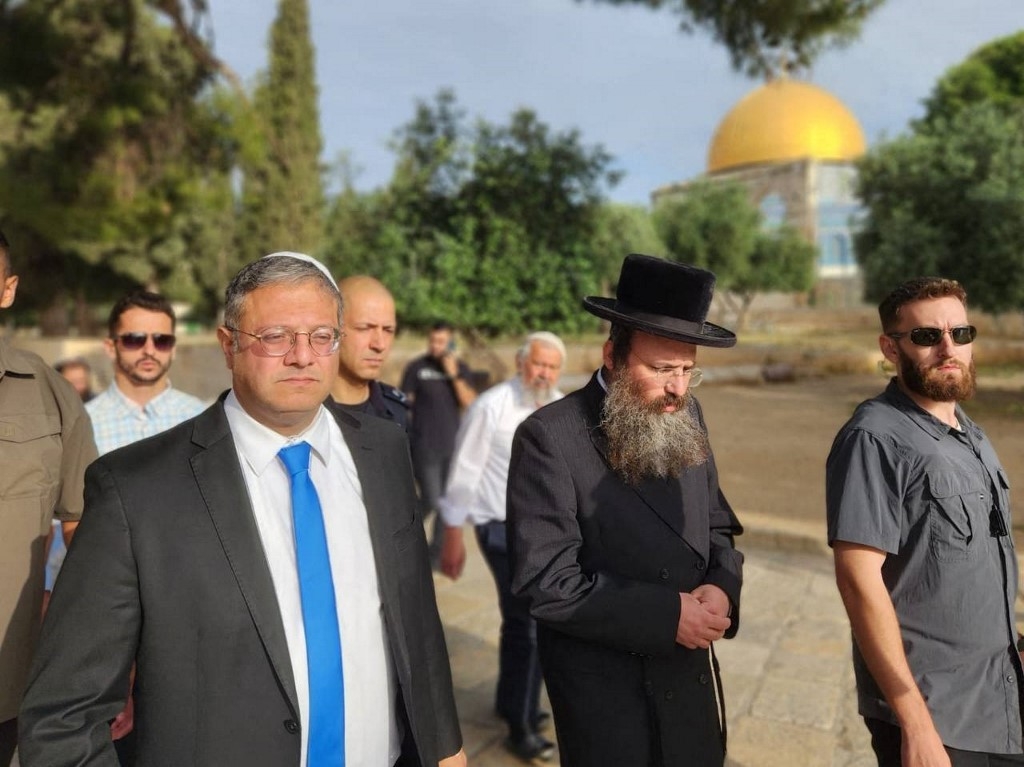
Israel's far-right national security minister, Itamar Ben Gvir, said on Wednesday that Jewish prayer is "allowed" in Al-Aqsa Mosque, sparking a backlash from both allies and opponents.
Speaking at a conference in Israel's parliament titled "Israeli Return to Temple Mount", a reference to the Jewish name for the holy site, Ben Gvir said that perceptions that Israel's "political leadership" were against changing the status quo on the site were inaccurate.
"The Temple Mount is undergoing change. We all understand what I am talking about - what needs to be said quietly will be done quietly. I was on the Temple Mount. I prayed on the Temple Mount," he told the attendees.
"They always tell me 'political leadership' is against it. I am the political leadership. And the political leadership allows Jewish prayer on the Temple Mount."
The status quo in Jerusalem has long maintained that Jewish prayer is forbidden on the raised plateau in occupied East Jerusalem's Old City where Al-Aqsa Mosque stands.
New MEE newsletter: Jerusalem Dispatch
Sign up to get the latest insights and analysis on Israel-Palestine, alongside Turkey Unpacked and other MEE newsletters
The site is believed to be the location of two ancient Jewish temples. Jews are permitted to pray at the Western Wall, which runs along one side of the hill and is regarded as the last remaining part of the Second Jewish Temple that the Romans destroyed in 70 CE.
Restrictions on non-Muslims entering the mosque have been in place since the Ottoman status quo designating Jerusalem's holy sites to its sects was established in 1757. The Chief Rabbinate of Jerusalem has also, since 1921, officially banned Jews from entering the Temple Mount.
However, over the past century, religious Zionist groups have advocated for the return of Jewish prayer at Al-Aqsa, with some even advocating the demolition of the mosque and reconstruction of the temple.
On Wednesday, Ben Gvir claimed that the current restrictions on Jewish prayer were an example of "racism" and discrimination against Jews.
"There is no reason for the Temple Mount not to be open 24/7, for Jews to not be allowed to come on Shabbat," he told the Knesset.
"All areas of The Temple Mount should be open to Jews to come."
His comments provoked criticism, including from within the ruling coalition of which Ben Gvir is a part.
Israeli Defence Minister Yoav Gallant said he opposed any plans to put Ben-Gvir in any new war cabinet, referring to the now disbanded government of national unity formed to prosecute the war in Gaza.
"Sitting in the Israeli government is a pyromaniac who is trying to set fire to the Middle East," he wrote.
Moshe Gafni, whose ultra-Orthodox United Torah Judaism party is a member of Prime Minister Benjamin Netanyahu's government, said Jewish prayer at Al-Aqsa would be a "severe violation" of Jewish law and demanded Netanyahu "not allow the status quo to change".
Interior Minister Moshe Arbel, of Shas, another ultra-Orthodox party, described Ben Gvir's comments as "blasphemy" and said that "the ban on Jewish prayer at the Temple Mount is the position of all the great men of Israel for generations".
Ben Gvir has made a number of visits to Al-Aqsa Mosque, including since the beginning of the war on Gaza in October 2023.
His visits have provoked outcry from both Palestinians and Israelis who have warned that the visits are intentionally provocative.
A visit to Al-Aqsa by Israeli leader Ariel Sharon in 2000 has been cited as the prime cause of the Second Intifada, which saw thousands of Palestinians and Israelis killed over the following five years.
In response to Ben Gvir's comments, opposition Labor MK Gilad Kariv accused him of being a "pyromaniac interested in igniting a Third Intifada" during "one of the most sensitive moments for the State of Israel".
Middle East Eye delivers independent and unrivalled coverage and analysis of the Middle East, North Africa and beyond. To learn more about republishing this content and the associated fees, please fill out this form. More about MEE can be found here.


